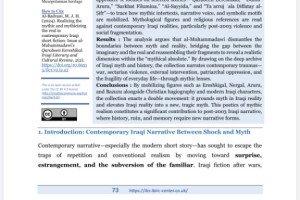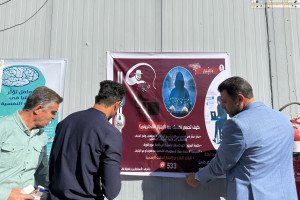


A master's thesis at the College of Education/Qurnah at the University of Basra investigated the protective action of Thymus Oil against pathological changes and oxidative stress induced by cadmium chloride salt in common carp Cyprinus carpio.The message presented by the student, Anaheed Odeh Muhammad Al, aimed to: 1. Measuring the average concentration of cadmium chloride in some organs of common carp (gills and muscles). 2. The role of thyme oil in responding and improving defensive capabilities against the harmful effects of oxidative stress on common carp fish and the effect of cadmium chloride concentration on the activity of the antioxidant enzymes (GPX1), Glutathion peroxidase, (SOD1), Superoxide Dismutase, and (CAT) Catalase.The study concluded The bioaccumulation of cadmium in fish tissue varies depending on the organs and depends on the concentration of the element, the duration of exposure, the type of fish, its age, and the method of exposure. Thyme oil plays an important role in reducing the accumulation of cadmium over time. It also enhances the production of antioxidants and reduces pathological tissue changes. Study of tissue changes can be relied upon. Pathogenesis as a vital indicator of pollution in the aquatic environment, as the gills are the most sensitive organ to any environmental pollutant due to their direct contact with the environment
Different organs in the fish's body reflect diverse reactions in antioxidant levels to the same oxidizing agent over different time periods. The study was recommended. Conducting studies on other pollutants related to pathological tissue changes on different types of fish with high nutritional value in the local environment. Histological studies in fish can be relied upon as vital evidence of the effect of other types of environmental pollutants, such as radioactive, oil, and thermal pollution on different tissues of local fish.Conducting studies on the use of other herbal medicinal plants and adding them to the fish diet. We recommend not relying on a single organ or specific type of antioxidant enzyme as a vital indicator for monitoring fish health. Monitoring must include successive periods of time instead of relying on a single period. Department of Media and Government Communication







